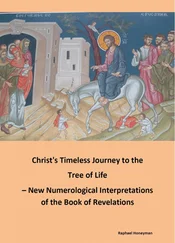We are not likely to see another dissolution of the monasteries.
Professor H. C. Barnard, writing in 1947 on the public schools
EDUCATION is the most political of all subjects, for it is firmly about the future. It defines the sort of society people want to see. At one extreme, for those who believe that the next generation should be more equal than the present one, the demand is for equal access to equally good education for all – although furious arguments can then follow about what is meant at which stage of a child’s life by ‘equal access’ and ‘good’, given wide variations in home background, income, aspirations and ability. At the other is a belief that there will always be inequalities and that it is better to organise for that reality, selecting out the high fliers to ensure that they do fly high and are thus able to support the mass for whom it might be safer all round if expectations were not too greatly raised. Education locks into a host of other issues. Should society be culturally or industrially equipped? Should important cultural, religious and economic differences between particular groups be sustained or suppressed? Should extra resources go into helping the least able, boosting the average or ensuring that the brightest are fully stretched? Should the ultimate aim of education be wealth creation, or should it simply be provided in its own right and for its own sake, to free people for the richer enjoyment of life through the knowledge, skills and concepts instilled?
Not all these conflicting objectives are necessarily incompatible all the time, but they do ensure that education is deeply political in the broadest, and far from purely party, sense. How it should be organised, what should be taught, how it should be taught, to whom and for what purpose, were to become some of the most closely fought issues of the modern welfare state. There is a certain irony, therefore, in the fact that education was the first of the five giants to be reformed, and reformed by a Conservative. In July 1941, R. A. (‘Rab’) Butler went to Downing Street to be appointed President of the Board of Education. His own account sets the scene:
The PM saw me after his afternoon nap and was audibly purring like a great tiger. He said, ‘You have been in the House [of Commons] for 15 years and it is time you were promoted.’ I said I had only been there for 12 years but he waved this aside. He said, ‘You have been in the Government for the best part of that time [Butler was currently in the Foreign Office] and I want you to go to the Board of Education. I think you can leave your mark there. You will be independent. Besides,’ he said with rising fervour, ‘you will be in the war. You will move poor children from here to here,’ and he lifted up and evacuated imaginary children from one side of his blotting pad to the other; ‘this will be very difficult.’ He went on: ‘I am too old now to think you can improve people’s natures.’ He looked at me pityingly and said: ‘Everyone has to learn to defend himself. I should not object if you could introduce a note of patriotism into the schools. Tell the children that Wolfe won Quebec.’ I said that I should like to influence what was taught in schools but that this was always frowned upon. Here he looked very earnest and commented, ‘Of course not by instruction or order but by suggestion.’ I then said that I had always looked forward to going to the Board of Education if I were given the chance. He appeared ever so slightly surprised at this, showing that he felt that in wartime a central job, such as the one I was leaving, is the most important. But he looked genuinely pleased that I had shown so much satisfaction and seemed to think the appointment entirely suitable. He concluded the interview by saying ‘Come and see me to discuss things – not details, but the broad lines.’ 1
Two days after taking over, Butler met the Archbishop of Canterbury. Three weeks later that was followed up by a session with a deputation of thirty-three Free Church and Anglican leaders with the Archbishop again at their head. They had come to discuss their ‘five points’, almost all of which related to religious education. Butler judged the meeting ‘successful’, finished it by asking a slightly startled Archbishop to close with a prayer, 2and promptly went on holiday.
Given that, for many of the years that followed, religion ceased to be a central issue in British schools, an explanation is needed for Butler’s holding his first substantive meetings with the churches. Until the 1830s schooling had been entirely voluntary with no state funding. A country that had produced Shakespeare, Milton, Newton and Smeaton and in the early nineteenth century had Faraday, Stephenson, Telford and Keats in its ranks had just four universities in Scotland and two in England – Oxford and Cambridge. Fewer than ten public (that is, private, fee-paying, boarding) schools were in existence, although there was a spread of endowed and often ancient grammar schools, private tuition, and small ‘dame’ schools taught by women in private houses. In addition, a little very rudimentary teaching for the young was provided in Sunday Schools or in elementary schools which were run by church-sponsored voluntary societies. In 1818 just 7 per cent of children attended day school. The beginnings of an educational movement were, however, under way, although there were still strong fears that ‘too much education might lead to disaffection’ in a society where the labour and service of the many supported the wealth and leisure of the few. Lord Melbourne, the Whig Prime Minister, famously told Queen Victoria in the late 1830s: ‘I do not know why there is all this fuss about education. None of the Pagets [the Marquis of Anglesey’s family] can read or write and they do very well.’
The industrial revolution, however, produced a demand for better educated workers to which the state was finally to respond. In 1833 a half-empty House of Commons approved a £20,000 grant for school building to help the two church-based school societies, one Anglican and one Free Church, which had been founded in 1811 and 1810 respectively. 3The Anglican society’s full title, The National Society for Promoting the Education of the Poor in the Principles of the Established Church, in a sense says all that needs to be said about education before 1830.
Parliament as a whole was barely interested. Although this was the moment when the state first became involved in any way in education, the government was still spending more in a year on the Queen’s stables than on educating its children. 4The church schools were helped because they were about the only people standing on the barren field; the Catholic schools were later also to receive funds. But by opting to subsidise church schools rather than create secular state ones, Parliament invested in a problem that Butler would still be grappling with more than a century later, for religious feeling ran high. Nonconformists bitterly opposed Anglican instruction in schools, as did Roman Catholics, and vice versa. Sir James Graham, the Home Secretary in 1841, was to complain bitterly: ‘Religion, the Keystone of education, is in this country the bar to its progress.’ 5For the various church societies – Church of England, Roman Catholic and the Nonconformists embracing various brands of Methodists, Quakers, Baptists, Congregationalists, Unitarians and others – went to war.
What was taught and how it was taught was not yet remotely the business of the government. What was taught was heavily biased towards the Bible. How it was taught was in many schools the ‘monitorial’ system: one teacher taught the older pupils who in turn taught the younger ones. Andrew Bell, the driving force behind the National Society, a bitter rival to the Quaker Joseph Lancaster who was patron of the British and Foreign, said: ‘Give me twenty-four pupils today and I will give you twenty-four teachers tomorrow.’ In this way a hundred children could be ‘taught’ by one master. 6
Читать дальше
![Nicholas Timmins The Five Giants [New Edition]: A Biography of the Welfare State обложка книги](/books/701739/nicholas-timmins-the-five-giants-new-edition-a-cover.webp)











